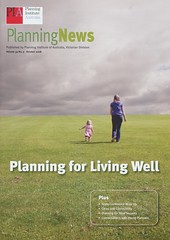WALL-E (Andrew Stanton, 2008)
Note: this review includes spoilers and my usual rambling ruminations about animation in general.
“There’s something warm and inviting about most animation in just about any classic Disney animated feature, and computers are just never going to pull it off.”
– Thad Komorowski, reviewing WALL-E
Pixar’s WALL-E is a refreshing change of pace. When almost all the productions of their rivals involved a group of animals teaming up and sharing an adventure (a format that even Pixar’s last film, Ratatouille, shared), Pixar have instead gone for a science fiction parable. The result retains their patented sweetness, but gives it a welcome sense of renewal. Pixar’s recent output had been invigorated by the recruitment of the immensely talented Brad Bird, but there was a feeling that Bird’s contribution to The Incredibles and Ratatouille might have been camouflaging a slide in the studio’s work. Certainly Cars, on which Bird did not work, was relatively dull and conventional. WALL-E, however, was written and directed by one of Pixar’s in-house talents, Andrew Stanton (who directed Finding Nemo and co-directed A Bug’s Life), and it shows that there is still a creative spark at Pixar beyond Brad Bird.

